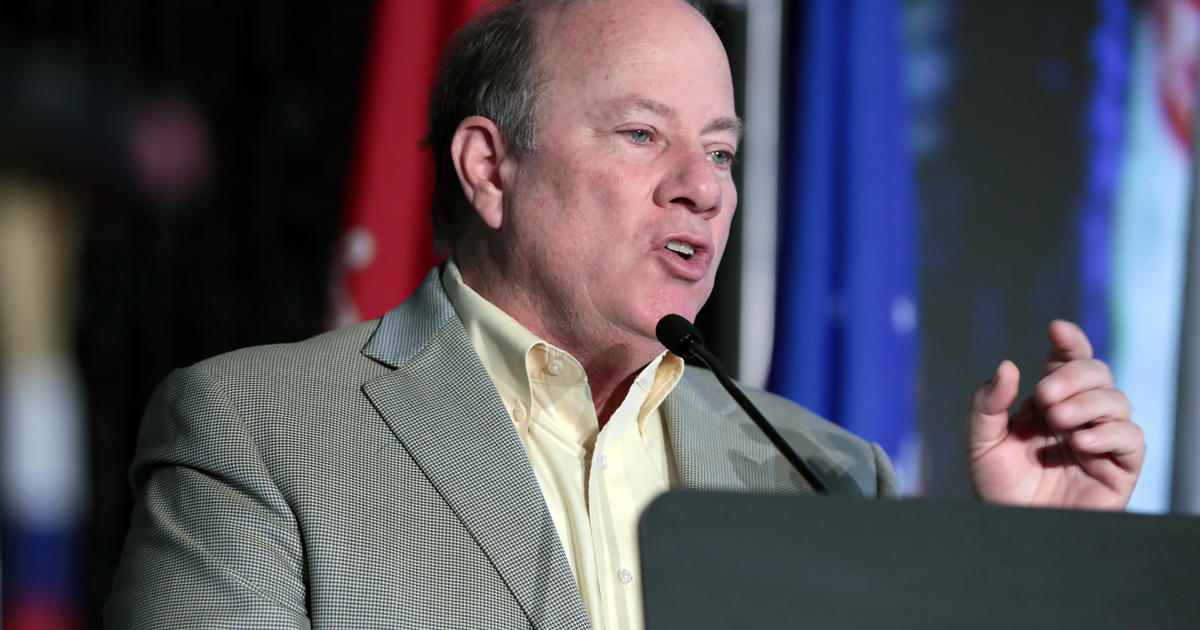GR Mayor: State Should Take Over Wind Turbine Site Selection
GRAND RAPIDS -- Grand Rapids Mayor George Heartwell called for a state takeover of the permit and site selection process for wind turbines at Ferris State University's fifth annual Michigan Energy Conference Thursday.
"Until the state takes over permitting and siting of wind turbines, we will never see the potential of wind energy in Michigan, especially in our coastal areas," Heartwell told an audience of more than 200 at the Frederik Meijer Gardens and Sculpture Park.
Heartwell said that's because local officials who currently have site selection power are too often intimidated by a few influential landowners who don't like the looks of wind turbines.
Heartwell told of the city of Grand Rapids' unsuccessful effort to install two large wind turbines in Grand Haven Township, where Grand Rapids draws its water from Lake Michigan, some 20 miles west of the city.
Heartwell joked that one of his aides who argued for the turbines in front of Grand Haven Township officials had escaped civil war in Bosnia, and "he told me he felt safer in Bosnia than he did arguing for those wind turbines in Grand Haven Township." Included, he said, was opposition from the Ottawa County prosecutor, who owns a lakefront home and "failed to see the aesthetic beauty" of wind turbines.
Heartwell said the city remains committed to a goal of 100 percent sustainable energy for all city functions by the year 2020. It already met an aggressive goal of 20 percent renewables for municipal power use by 2008.
Recent upgrades, he said, included the replacement of nine stories' worth of single-pane windows on City Hall, as well as replacing all City Hall lighting fixtures, "using that evil tool of federal earmarks."
Grand Rapids has also replaced its traffic signal lights with LEDs, although replacing all street lighting with LEDs remains a frustratingly low process, he said. And the city has pushed developments to earn Leadership in Energy and Environmental Design awards through the U.S. Green Building Council -- he said the city is home to the world's first LEED-certified bus station, the first LEED-certified YMCA building, the first LEED-certified art museum, and the first LEED-certified brewery.
The city has also set a goal of planting an additional 185,000 trees to increase its capacity for carbon offset.
"Government has to become more nimble than ever before," he said. "The pace of environmental change is staggering, and we need to keep pace with changes that are coming at us with the speed of a runaway train."
Government units must also learn to work together to solve environmental problems, he said.
"The planet is in peril," he said. "Nobody else is going to save this planet other than us. We have the moral obligation to the generations that follow us."
Ferris State moved its energy conference from its Big Rapids campus to the spectacular Meijer Gardens conference center in Grand Rapids, and compressed the agenda from two days to a single day, in an effort to boost attendance this year. The conference is heavy on practical information like building standards and heating and cooling system technologies.
More at www.ferris.edu/mec.
After Heartwell's speech, a panel of university presidents -- Ferris State's David L. Eisler, Grand Valley State University's Thomas J. Haas and Grand Rapids Community College's Steven C. Ender -- discussed their universities' green efforts.
Ender said GRCC has saved more than $3 million a year in energy costs through its conservation efforts -- which is a huge deal, given that the college's operating budget is $106 milllion, of which 84 percent is salaries and benefits.
And he said that "sustaining sustainability" is the real change, since he's found that after an initial rush of enthusiasm, "people fall back into old habits" of wasting energy.
Haas, for his part, said that university officials frequently find themselves pushed by students to adopt green policies.
Over lunch, Valerie Brader, energy policy adviser to Michigan Gov. Rick Snyder, painted a relatively upbeat picture of Michigan's energy future.
For one thing, she said, there's lots of high-tech job opportunity in the Michigan energy industry -- she said she formerly worked for a Korean battery manufacturer that had a hard time finding chemical engineers in Michigan. She told the students in the audience not to assume they'd have to leave the state after graduation.
She said, however, that Michigan energy prices are higher than neighboring states -- 13.17 cents a kilowatt-hour for residential energy, vs. 12.82 in Wisconsin, 11.17 in Illinois, 10.96 in Ohio and 9.85 cents in Indiana. Commercial rates are 10.18 cents a kilowatt hour in Michigan, lower than only 10.20 cents in Wisconsin, and higher than 9.22 in Ohio, 8.74 cents in Indiana and 8.13 cents in Illinois.
The major driver of power cost, she said, is fuel cost, and Michigan pays more for its coal than neighboring states because Michigan uses more coal from the western states rather than Appalachia, meaning shipping costs are higher.
Michgian currently generates only 3.9 percent of its electricity from renewable sources, but a state law requires than to rise to 10 percent by 2015. A ballot proposal is afoot to boost that to 25 percent by 2025. Brader said Snyder hasn't taken a position on that proposal, which is opposed by utilities.
Nationally, the electric mix was 52 percent coal, 20 percent nuclear, 16 percent natural gas and 7 percent hydro in 2000. By 2020, that's predicted to change to 42 percent coal, 27 percent natural gas, 17 percent nuclear, 6 percent hydro, 5 percent wind and 3 percent other renewables.
That's good news for Michigan, she said, because Michigan has more natural gas reserves than surrounding states, and more natural gas storage capacity in natural underground rock formations than any other state in the country.
Brader said solar power remains uncompetitive economically, which several solar power purveyors in the audience disputed.
She said Michigan is on the cusp of making major decisions in what will replace its aging coal plants, and of whether or not to allow widespread hydraulic fracturing techniques, commonly known as fracking, to produce oil and gas.



